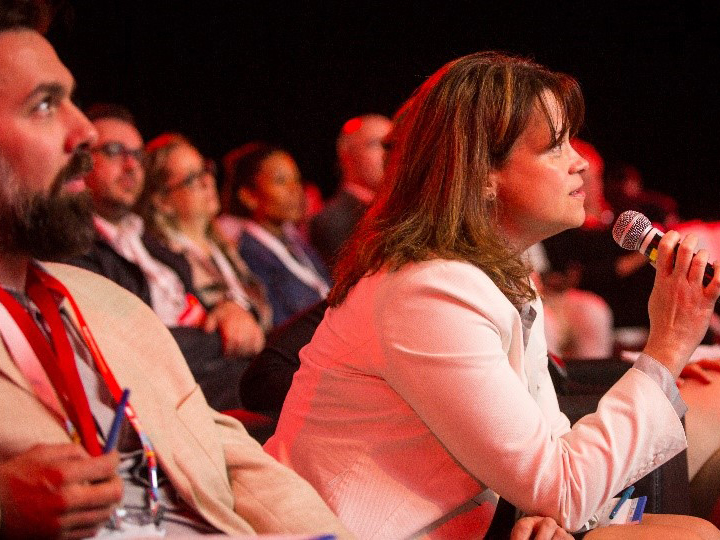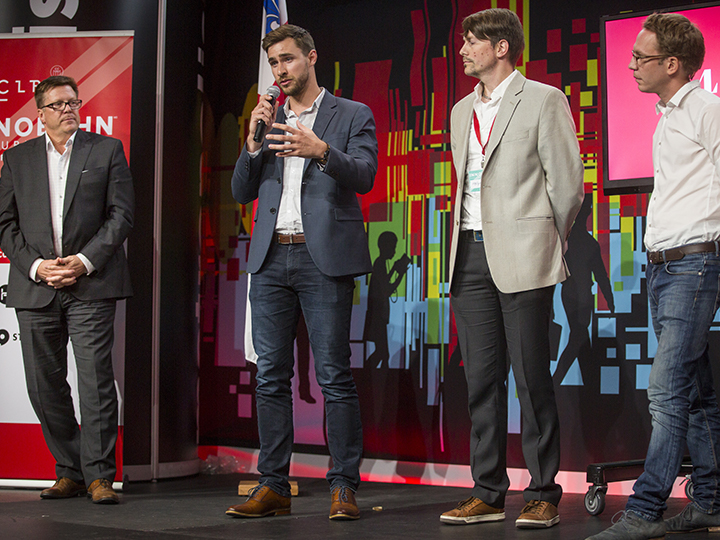How can we help big cities be able to better respond in major crisis situations? That was the challenge issued by the City of Montreal to our city’s start-ups as part of InnoBahn Ubisoft. The event was held last June during the Metropolis World Congress with several global urban leaders in attendance. Louse Bradette, Montreal’s Director of Civil Security and Chief Resilience Officer, and Stéphanie Guidon, Interim Director of the Smart and Digital City Office, share what they took away from the start-ups’ approach to the challenge. It seems that it was an experience that made the City rethink the way it is defining its needs.
Chamber of Commerce of Metropolitan Montreal (CCMM) – What does the term “major crisis” mean?


Louise Bradette (L.B.) – A major crisis or disaster is an event that has a significant impact on the population, one that affects their security and health. Traditional management structures are not sufficiently equipped to respond to this kind of situation on their own and they need to rely on several actors, both inside and outside their organization.
CCMM –Why did you make this the theme of this year’s InnoBahn Ubisoft?
L.B. – We can’t deny that these situations are increasing in frequency, both around the world and in Montreal. These are complex events that require numerous people to carry out an adequate response. Recent major crisis situations in our city have highlighted how hard it is to increase awareness in populations at risk, to quickly relay information, and convey the appropriate behaviours they need to adopt. These experiences have also revealed how important it is for a manager to rely on decision support tools to detect the emergence of such a situation through the capture, analysis, and compilation of data stemming from different sources.
Stéphane Guidoin (S.G.) – Within this context, the City of Montreal was looking for a formula that would allow an external player (a start-up) to bring added valued without necessarily having to understand the City’s internal workings. Improving the links between the administrative system and the population was a good starting point. As Louise mentioned, some recent events throughout the world and in Montreal, such as this past spring’s floods, created a springboard for this type of collaboration.
CCMM – What did you think of the four finalists’ presentations?


S.G. – They came up with very interesting solutions. We should mention that two start-ups teamed up to join forces. This is a very interesting approach because in the context of a crisis, and in several of the City’s fields of activity, it is very rare for products or companies to be able to respond to every need on their own. Companies must be open to collaborating with others and their products have to be built in a way to facilitate this collaboration.
L.B. – The four start-ups devised interesting proposals. However, just like with Montreal’s Resilience Strategy, which will be submitted in the near future, we made our choice based on which start-up provided the most opportunities to the citizen: proactivity, information, interaction.
CCMM – Is that why you picked the start-up Wemap?
S.G. – Yes, even if it was a difficult choice! Our decision was made in light of the following two points:
-Many people do not know how to act in the case of a crisis, and each crisis can be unpredictable in its own way
-The experience shows that in these situations, people affected tend to rely on their usual modes of communication
From this perspective, Wemap was the start-up that was able to take these two insights into account. The information system proposed allows affected people to stay informed without any prior specific knowledge. The information is relayed through several media channels in a way that corresponds to people’s media consumption habits.
CCMM –What has this experience taught you?
S.G. – It’s remarkable that companies can mobilize very quickly around this kind of challenge. Most start-ups in the competition did not present a product specifically designed for crisis management but modified an existing tool to meet this demand.
It’s an interesting approach that prompts us to think about the way we define our needs. We’d like to ensure that as many organizations as possible are able to meet these needs, whether within the context of a challenge such as InnoBahn or in other situations